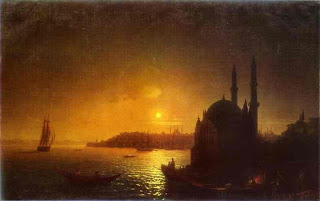Septimus Severus at Glyptothek, Munich
Severus was born on Aprill 11, 145, in the Roman province of Africa. After a career of clever politics and charismatic leadership, he earned the position of Roman Emperor, reigning from 193 until his death in 211. This was an amazing accomplishment. First, he was an African NOT of Italian ethnicity (most likely Punic). Second, he had to fight his way to the Purple against four other contenders. This is known as the Year of the Five Emperors.
His reign was marked by constant warfare, expanding the African province, beating up on Parthia, crushing Usurpers, and finally launching an invasion into Scotland, known then as Caledonia. His reforms of the Imperial Army would have long-lasting ramifications. Likewise, the debasement of the coinage to pay for his military adventures would have an enduring impact of Rome's economic health.
It seems as though many historians give only cursory attention to his reign. This is outrageous! Severus' legacy for better or worse shaped all of Roman history to come. In my opinion, only Augustus, Constantine and Hadrian leave a deeper mark on Western Civilization.
Here's a link to the Wikipedia article on
Septimius Severus.
Enjoy!!!


